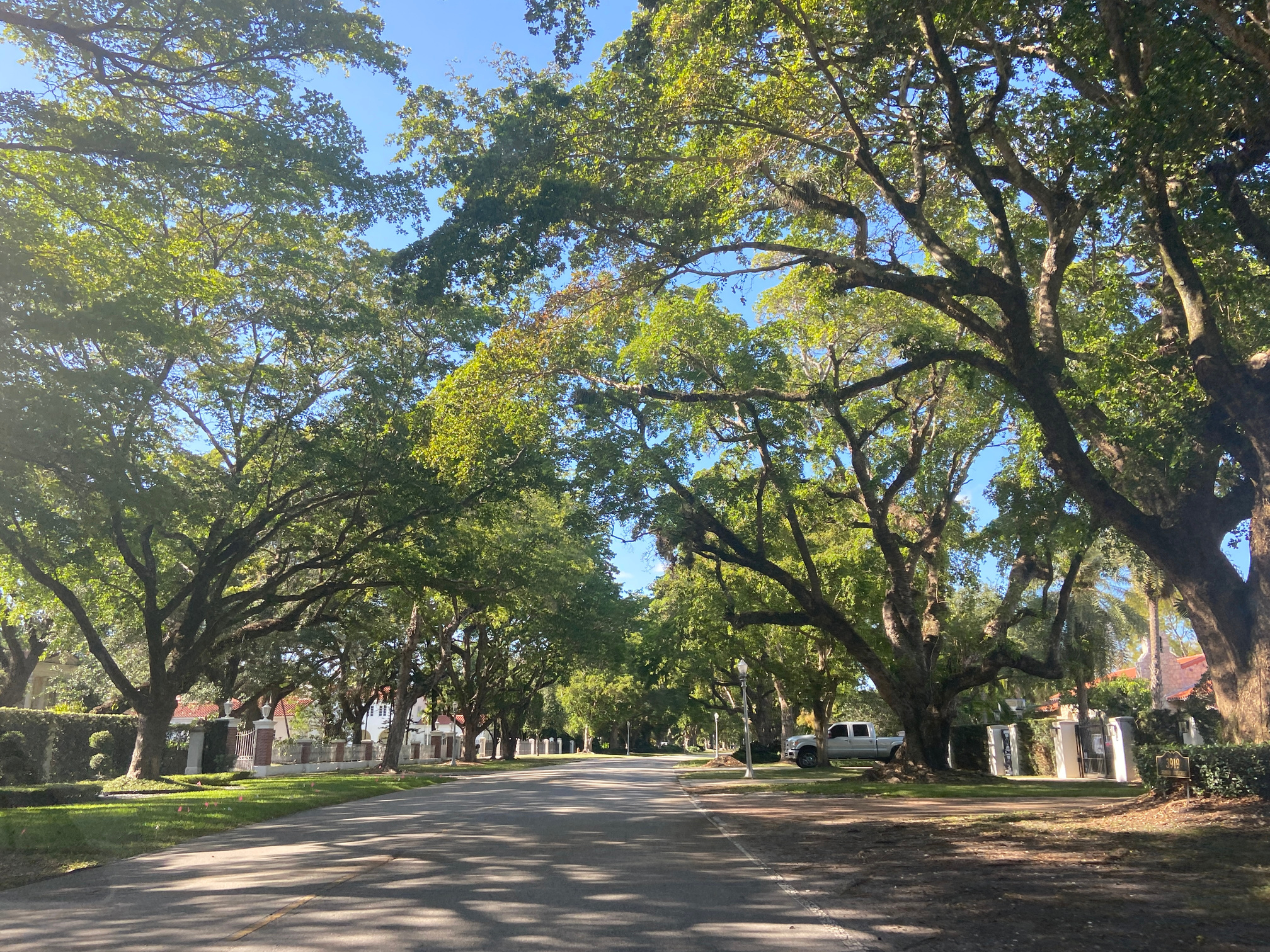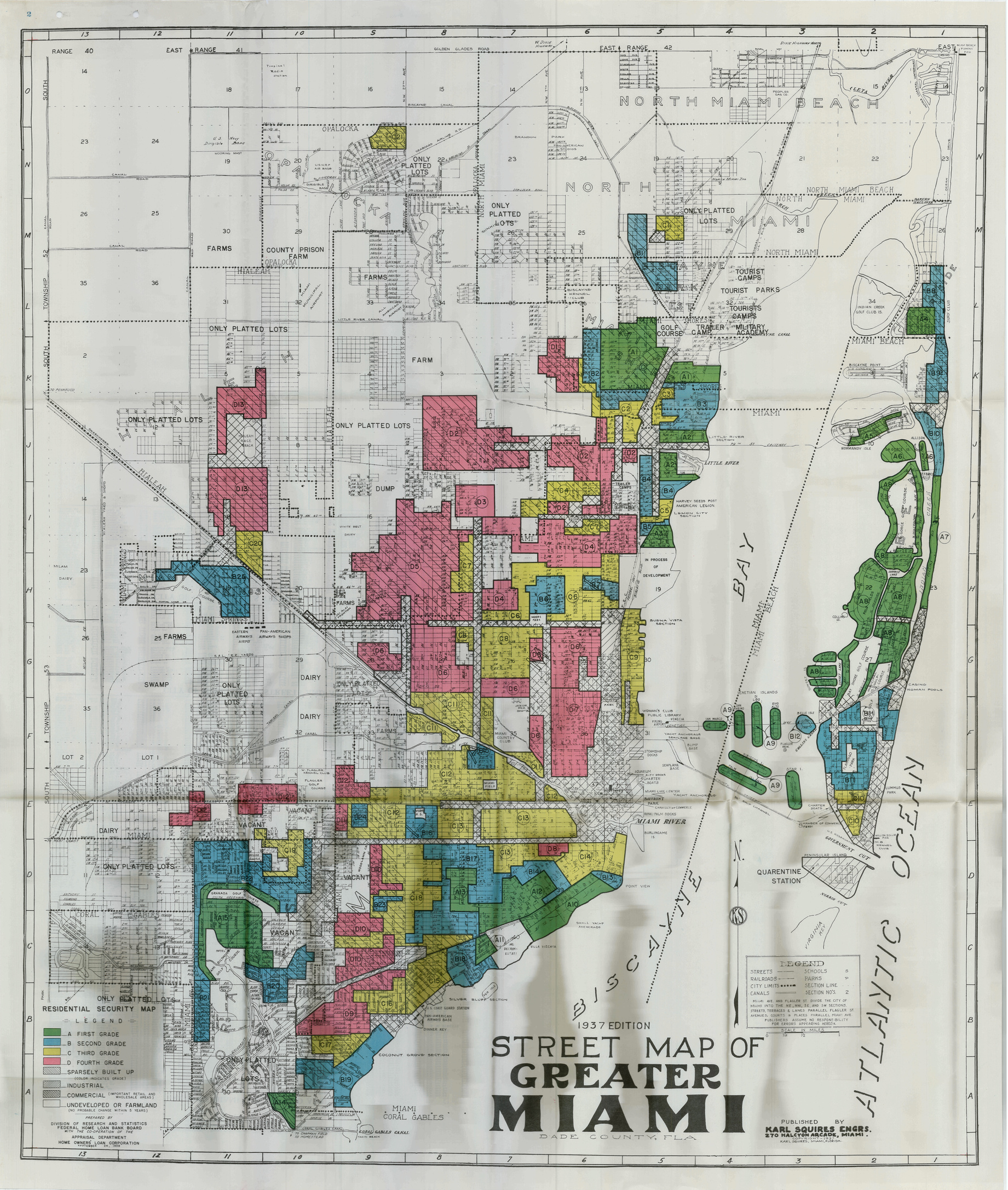
Miami’s urbanized neighborhoods feel the brunt of living in concrete jungles
By: Jazmine Santillana
Leer en Español
Without trees to protect them, residents of Miami's most urbanized neighborhoods suffer the effects of extreme heat.
These predominantly minority communities, like Allapatha or Liberty City, consist of warehouses and concrete with few trees to offer shade. Experts like Nkosi Muse, Ph.D., candidate in Environmental Science and Policy at the University of Miami, say that increasing tree canopies is crucial to limiting the impact of intense heat.

“Tree canopies throughout Miami-Dade County have to increase,” Muse said. "If we want to cool neighborhoods equitably, we at least need shade."
Warm temperatures in Florida feel different from those in northern states. The large amount of moisture in the air prevents people from cooling themselves naturally through sweat.
According to Muse, heat is more than an ecological issue. The infrastructure seen in predominantly minority neighborhoods, where more immigrants live, also contributes to the problem.
“Since 1930, historically, there was no investment in these areas, meaning they were not given the same solutions or infrastructure as other neighborhoods,” he said. “All of these other racist and prejudicial zoning practices that we have seen are having a very significant adverse effect on many of these neighborhoods.”
Maria Furey, who holds a master's degree in forestry and is chair of the North Miami Beach Beautification Committee, emphasizes the importance of planting trees to combat intense heat and mitigate the ecological impacts created by climate change.
"You have to select trees native to the area because of their evolutionary advantage that adapts to the climate, the amount of rain or the drought experienced in that area," he said. “They are essential food and cover for local wildlife.”
Planting the right trees is also essential to protect communities against extreme heat, an aspect that Muse highlights is often overlooked when governments select trees.
“Different types of trees have different cooling capacities. We plant tall, tropical-looking trees that do not benefit the cooling in some of these neighborhoods,” said the UM expert. “Local governments may not want this tall maple that emits tons of pollen at certain times of the year but can't shade an entire block. A lot of it comes down to money.”
If city or county officials do not consider the microclimate or unique conditions of the ecozone when choosing species of trees to plant, problems already exacerbated by climate change may worsen.
"When trees photosynthesize, their end product is to cool the surrounding air beyond the shade," Muse said. “It's like sweating. The tree is spraying the areas around it, making the environment even more humid”.
Rising sea levels will add to the state's intense humidity due to increased evaporation, making the air more humid. According to Muse, the humidity makes the heat feel much worse than it is.
“You overheat, and that's how we see these heat illnesses. “Heat kills silently, but it also kills in large quantities.”
Residents without adequate indoor cooling systems are left dangerously unprotected from outdoor conditions. Muse points out that increasing the canopy of street trees has clear benefits, such as protecting against direct solar radiation reaching local homes.
“The neighborhoods cannot recover at night because the pavement absorbs all the sunlight during the day; you have to pay it back,” Muse said. “When you bring that heat back, there are a lot of health outcomes that occur: people suffering from heat stress, heat stroke, and respiratory conditions. “The heat and humidity make it harder to breathe.”
Muse highlights how the lack of tree canopy creates an energy problem. Solar radiation falls on apartment buildings and other people's homes, forcing them to keep their air conditioning systems on longer. Residents of low-income neighborhoods face higher energy bills due to extreme heat over which they have no control.



